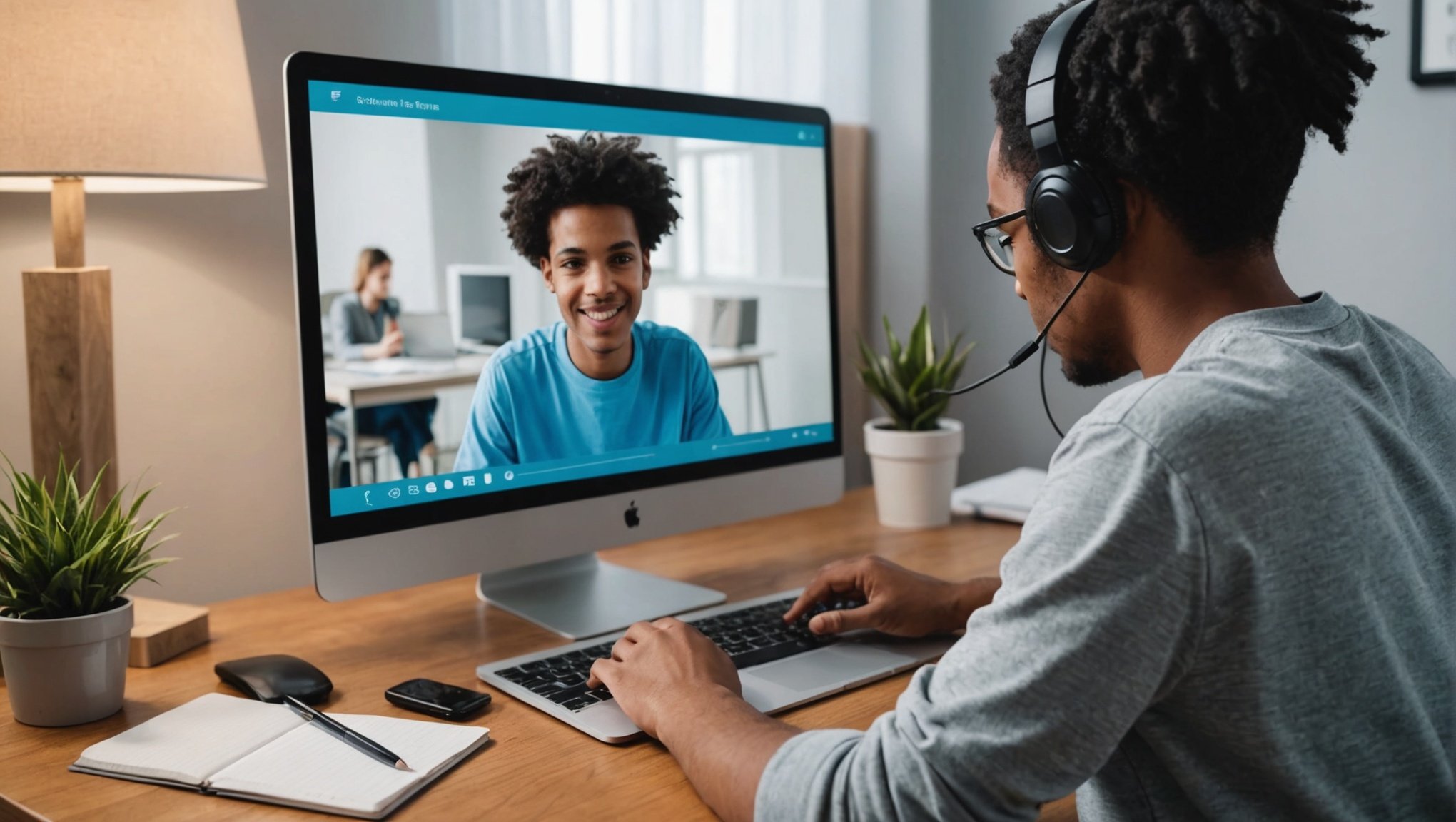Proven Strategies to Minimize Screen Time and Enhance Your Mental Well-Being
In today’s digital age, the impact of screen time on our mental health has become a pressing concern. From children to adults, the constant glare of screens can have profound effects on our well-being. Here, we will explore some proven strategies to help you minimize screen time and enhance your mental health.
Understanding the Impact of Screen Time on Mental Health
Before we dive into the strategies, it’s crucial to understand why screen time is such a significant issue. Extended daily screen time has been linked to increased anxiety levels, particularly among students and children. Research has shown that not all screen time is created equal; educational content tends to have a more positive effect on mental well-being compared to passive entertainment or social media use.
Also to see : The Benefits of Consistent Tai Chi Practice on Joint Wellness: Exploring Its Impact on Your Health
Associations Between Screen Time and Mental Health
- Anxiety and Depression: Excessive screen time, especially on social media, can increase feelings of anxiety and depression. This is partly due to the constant comparison and the curated highlight reels that can distort reality.
- Sleep Disturbances: Screen time before bed can disrupt sleep patterns, leading to sleep disturbances and further exacerbating mental health issues.
- Social Isolation: While social media connects us to others, it can also lead to social isolation, as people substitute online interactions for real-life connections.
Setting Boundaries and Creating Healthy Habits
Setting clear boundaries and creating healthy habits are key to managing screen time effectively.
The 50/10 Rule
One effective strategy is the “50/10 rule”: 50 minutes of focused digital work followed by 10 minutes of screen-free activity. This structured approach helps maintain cognitive function while preventing digital fatigue. Educational institutions that have adopted this method report improved student concentration levels and better overall academic performance.
Topic to read : Exploring the Impact of Virtual Reality on Cognitive Rehabilitation for Brain Injury Survivors
Tech-Free Zones
Creating “tech-free zones” in your home can be highly beneficial. Designating areas like the dinner table or bedrooms as screen-free can help reduce overall screen time and promote healthier habits. For example, having a tech-free dinner time encourages family interaction and reduces the likelihood of mindless scrolling.
Practical Strategies for Reducing Screen Time
Here are some practical strategies to help you and your family reduce screen time:
Digital Wellness Challenges
Implementing “digital wellness challenges” can be an engaging way to track and optimize screen time habits. These challenges often include activities like maintaining a digital usage journal, setting personal screen time goals, and participating in group discussions about healthy technology use. Such initiatives help develop greater awareness of digital habits and foster a supportive community focused on balanced technology use.
Prioritizing Self-Care
Self-care is essential for maintaining mental health, and reducing screen time is a part of it. Here are some self-care strategies:
- Identify Your Triggers: Keep a journal to identify situations or events that cause stress and reflect on how you react to these stressors.
- Set Boundaries: Take breaks during the day, whether it’s a 10-minute walk or an afternoon off to reset.
- Sleep Well: Aim for 7-9 hours of sleep each night to give your mind the rest it needs to recharge.
- Unplug: Reduce screen time before bed, especially on social media, which can increase feelings of anxiety.
Physical Activity
Physical activity is a proven way to reduce stress and anxiety. Here are some tips:
- Find What You Enjoy: Whether it’s walking, running, yoga, or weightlifting, find an activity that brings you joy and helps you unwind.
- Stay Consistent: Aim to get at least 30 minutes of exercise most days. This not only improves your mood but also boosts your overall health.
Mindfulness and Digital Detox
Mindfulness and digital detox can be powerful tools in managing screen time.
Mindfulness Techniques
Mindfulness helps anchor you in the present moment, reducing the hold that anxiety has over your thoughts. Here are some mindfulness techniques:
- Meditate Daily: Even 5-10 minutes of quiet meditation each day can help clear your mind and reduce stress.
- Body Scans: Take a few minutes to focus on different parts of your body, releasing tension as you go. This is particularly helpful before bed.
Digital Detox
A digital detox involves taking a break from all digital devices for a period of time. Here’s how you can incorporate it into your routine:
- Weekend Digital Detox: Consider a weekend digital detox where you avoid all screens for 48 hours. This can help you recharge and gain a fresh perspective.
- Daily Digital Breaks: Take short breaks from screens throughout the day. For example, you could avoid screens during your morning routine or right before bed.
Creating a Supportive Environment
Creating a supportive environment is crucial for maintaining healthy screen time habits.
Family Involvement
Involving your family in reducing screen time can make the process more enjoyable and sustainable. Here are some tips:
- Set Family Goals: Set screen time goals as a family and work together to achieve them. This could include having screen-free days or limiting screen time to certain hours of the day.
- Encourage Outdoor Activities: Encourage children to play outdoors and engage in physical activities. This not only reduces screen time but also promotes physical health.
Community Support
Staying connected to friends and family can provide a sense of comfort and support during times of stress.
- Talk It Out: Share your thoughts and feelings with a trusted friend or family member. Sometimes, just expressing how you feel can lighten your emotional load.
- Join a Support Group: Consider joining a local or virtual support group where you can meet others experiencing similar challenges. Knowing you’re not alone can provide a sense of comfort.
Emerging Trends in Digital Wellness
As technology continues to evolve, so do the strategies for managing screen time.
Adaptive Learning Systems
Emerging trends in educational technology are focusing on adaptive learning systems that can automatically adjust screen time and content delivery based on individual student needs and engagement levels. These smart systems can detect signs of digital fatigue and suggest appropriate breaks or alternative learning activities. This personalized approach to digital learning represents the next evolution in educational technology, where the focus shifts from uniform screen time guidelines to individualized digital wellness plans.
Table: Comparing Different Screen Time Reduction Strategies
| Strategy | Description | Benefits | Challenges |
|---|---|---|---|
| 50/10 Rule | 50 minutes of focused digital work followed by 10 minutes of screen-free activity | Improves concentration, reduces digital fatigue | Requires discipline and scheduling |
| Tech-Free Zones | Designating areas like the dinner table or bedrooms as screen-free | Promotes family interaction, reduces overall screen time | May require adjustments in daily routines |
| Digital Wellness Challenges | Tracking and optimizing screen time habits through journals and group discussions | Increases awareness of digital habits, fosters a supportive community | Requires commitment and participation from all family members |
| Physical Activity | Engaging in at least 30 minutes of exercise most days | Reduces stress and anxiety, improves mood and overall health | Finding time and motivation can be challenging |
| Mindfulness and Digital Detox | Practicing mindfulness techniques and taking breaks from digital devices | Reduces stress, improves mental clarity, and promotes physical health | Can be difficult to maintain consistency, especially in a highly digital environment |
| Family Involvement | Setting screen time goals as a family and working together to achieve them | Makes the process more enjoyable and sustainable, promotes family bonding | Requires cooperation and commitment from all family members |
| Community Support | Staying connected to friends and family, joining support groups | Provides a sense of comfort and support, helps in managing stress and anxiety | May require effort to find and join support groups |
Managing screen time is a critical aspect of maintaining good mental health in today’s digital world. By setting clear boundaries, creating healthy habits, and leveraging practical strategies such as digital wellness challenges, physical activity, and mindfulness, you can significantly reduce your screen time and enhance your mental well-being.
As Dr. Pip suggests, “Encouraging children to get healthier by playing outdoors and not having the phone before bedtime can make a significant difference in their overall health and well-being”.
In the words of a parent who implemented these strategies, “By setting tech-free zones and encouraging physical activity, we’ve seen a noticeable improvement in our children’s focus and overall mental health. It’s about finding that sweet spot between digital innovation and well-being.”
By adopting these proven strategies, you can help yourself and your family navigate the complexities of screen time and foster a healthier, more balanced lifestyle. Remember, it’s all about finding the right balance and using technology in a way that enhances your life without compromising your mental health.






